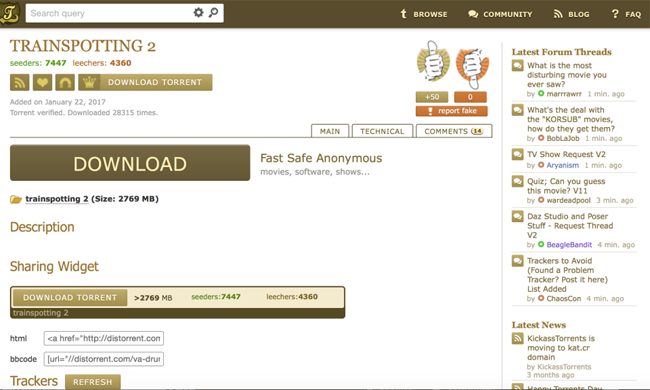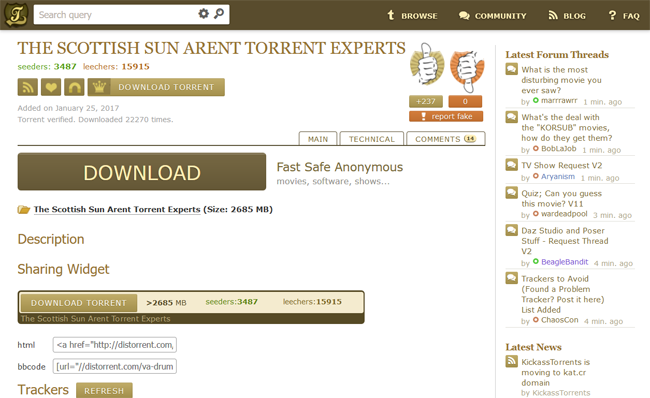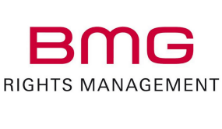The US ‘Six Strikes’ Anti-Piracy Scheme is Dead
samedi 28 janvier 2017 à 18:38 In 2011, the MPAA and RIAA teamed up with several major U.S. Internet providers, announcing their plan to shift the norms and behavior of BitTorrent pirates.
In 2011, the MPAA and RIAA teamed up with several major U.S. Internet providers, announcing their plan to shift the norms and behavior of BitTorrent pirates.
The parties launched the Center for Copyright Information and agreed on a system through which Internet account holders are warned if their connections are used to download pirated content.
The program allowed ISPs to take a variety of repressive measures, including bandwidth throttling and temporary Internet disconnections.
The “voluntary” agreement was praised by the US Government and seen as an example for other countries, including the UK, where a similar system is about to start. At the same time, however, the Copyright Alert System members have just ended their efforts.
“After four years of extensive consumer education and engagement, the Copyright Alert System will conclude its work,” the members of the Center for Copyright Information (CCI) just announced.
“The program demonstrated that real progress is possible when content creators, Internet innovators and consumer advocates come together in a collaborative and consensus-driven process.”
It’s unclear what progress the members are referring to, as the system mostly excelled at its failure to share information with the public.
Since its inception, CCI has issued only a few press releases, and any recent data on the scope and effectiveness of the program is lacking. The only figures that were ever published cover the first ten months, ending December 2013.
Last summer we publicly questioned if the Copyright Alert System was doomed, but at the time CCI’s Executive Director Jim Kohlenberger was still hopeful.
“Going forward, we continue to look for opportunities to refine the system, and to advance our efforts and to elevate our consumer-focused mission in pragmatic ways,” Kohlenberger said.
However, it now appears that the parties couldn’t reach consensus on how to extend or update the existing agreement, to keep going for the years to come. Why they eventually chose to stop the program entirely is not clear from the announcement.
In their public-facing statement, copyright holders and ISPs remain positive, but it wouldn’t be a surprise if the mood behind the scenes is grimmer.
“We want to thank everyone who put in the hard work to develop this program and make it a success, including past and present members of our Advisory Board. While this particular program is ending, the parties remain committed to voluntary and cooperative efforts to address these issues,” CCI concludes.
The decision to end the “six strikes” scheme marks the end of an era. While it means that pirates no longer have to fear temporary Internet disconnections and other mitigation measures that were part of the program, MPAA and RIAA can still send takedown notifications of their own accord.
Source: TF, for the latest info on copyright, file-sharing, torrent sites and ANONYMOUS VPN services.




 Can an Internet provider be held liable for subscribers who share pirated files? Yes, a Virginia federal jury
Can an Internet provider be held liable for subscribers who share pirated files? Yes, a Virginia federal jury  With the advent of cheap Android devices such as
With the advent of cheap Android devices such as 